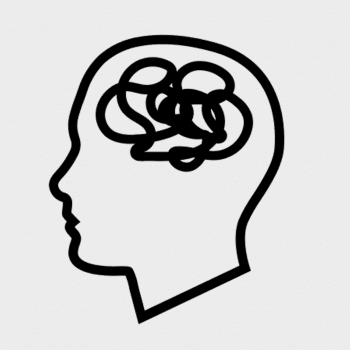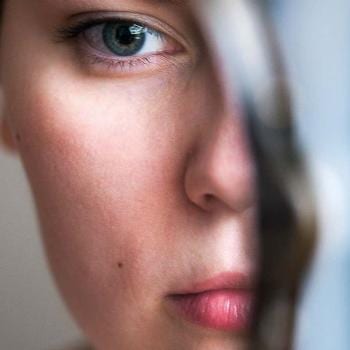The most common question I am asked is “How do you reconcile your Catholic faith with your research?” or the popular rhetorical variation, “You study theology and neuroscience? That’s an odd combination.”
It has come up in a multitude of contexts, from Catholic university campuses to the National Institutes of Health, from conversations with strangers on the bus to family reunions. In the conversations that inevitably follow, I have come across a number of [false] assumptions people have about Catholicism, neuroscience, and their relationship.
Today, I’m going to explain what it means to be a Catholic neuroscientist. But I’ll do this apophatically, so that I can highlight key misunderstandings that I’ve encountered. In other words, here are ten ways to be a bad Catholic neuroscientist.
1. Believe that you can understand everything
Both a Catholic faith and a career in neuroscience demand deep humility. The Catholic faith constantly reminds the human person of her finitude and dependence, and calls her to respond to this disproportion with awe and reverence. The field of neuroscience is still, in some senses, in its infancy. There are many things that neuroscience cannot yet explain — not just the “black box” of consciousness, but basic mechanisms of sensation and behaviour! To be a neuroscience researcher is to constantly come up against the vastness of what one does not know.
The human intellect is limited, and the Mystery is infinite. But a bad Catholic neuroscientist ignores this, and prides herself in her expansive understanding of the corpus of spiritual and scientific truths.
2. Compartmentalize your studies (and therefore your life)
If the Catholic faith were incompatible with neuroscience, one could circumvent this by compartmentalizing the two. Our modern life encourages such a fragmentation of existence. We wear masks that hide our faces, presenting differently at work and school, with friends and family. Though we are allowed to hold normative beliefs, we’re never to allow them to influence or infringe on our practical lives. We are to put our heads down and keep working blindly, and ask the difficult questions somewhere else (or not at all).
Such a fragmentation of life is profoundly unreasonable, because life is composed of an irreducible unity. Because of this, fragmentation leads to an impoverished faith and impoverished science. When we reduce faith to an activity that takes place within the four walls of a church, and artificially separate it from the rest of our lives, we miss the innumerable opportunities for encounters with the divine throughout the rest of the week. Often, these moments can happen through our work. I have learned to see God’s fingerprints in synaptic architecture, to experience His grace through the experimental process, to search for Him in the midst of apparently tedious statistical analysis.
These experiences of unity help my science, too, for they make me a more resilient, curious, and creative researcher. They help me see how and why my neuroscience studies should be translated into justice for the marginalized. They fill me with the desire and ability to communicate my passion for the brain.
When you are searching for a radical newness and an irreducible unity in your daily life, everything comes alive — including your work.
3. Be a Young Earth Creationist neuroscientist
I admit this is an obvious way to be a bad Catholic neuroscientist. But a remarkable number of people have objected, “what about evolution?” As I’ve explained before, the Catholic faith is compatible with evolutionary theory. Evolution is not in competition with God’s creative power — it answers the question of “how?” rather than “why?” Furthermore, we can accept evolutionary theory without believing the materialism it’s often used to support, without believing that human relationships are reducible to competition, and without rejecting truths deeper than empirical observation.
When it comes to neuroscience, evolutionary theory is incomparably helpful. It unlocks many of the mysterious and idiosyncratic characteristics of the brain. As a very basic example, only our fish and amphibian past can make sense of the arrangement of our cranial nerves. An evolutionary perspective is essential if we are to understand the human nervous system. So, to be a bad Catholic neuroscientist, be sure to reject Saint John Paul II’s statement that “evolution is more than a hypothesis.”
4. Reduce religious experiences to their neural correlates
There is a branch of neuroscience devoted to the study of the neural correlates of religious experiences, such as prayer. Some of this research is well-executed and provides valuable information for both scientists and Catholics. However, the science itself provides no evidence for reductionism. All it does is identify a biological reality that underlies a psychological, social, or spiritual reality. This is not a surprise! As human persons, we are a thoroughgoing continuity of mind and matter with no dualistic separation of the two. So it makes sense that there is a material substrate for our religious experiences. But a bad Catholic neuroscientist would overlook this fact, and instead argue that prayer, communion, faith, and mysticism can be fully explained in terms of synaptic firing.
5. Think about neuroscience only through philosophy and theology
This is a tempting way to be a bad Catholic neuroscientist, because philosophy and theology are delightful. But you don’t need to think about Jacques Maritain to analyse your EEG data. You need to know your experimental method, mathematical principles, and the fundamentals of programming. When it comes to research, put away your theology for a moment and focus on the science. Learn the research principles, and how to read and write scientifically. Learn to use common techniques and cutting-edge methods, and get up-to-speed on the existing literature. These scientific realities are valuable all on their own. Learn about reality through them; let your data speak for itself.
I’m not saying you should put away your faith, which is both impossible and undesirable (see point 2). And of course, when it comes to exploring the implications of your findings or their place in a larger scheme of meaning, interdisciplinarity is indispensable.
But if your only engagement with neuroscience is by way of philosophy or theology, you aren’t a Catholic neuroscientist. You’re a Catholic philosopher or theologian.
6. Believe that science explains everything
In the Middle Ages, theology was crowned the “queen of the sciences.” However, with the Enlightenment, the advancing forces of secularism dethroned her. As Max Weber explains in Science as a Vocation, religion became just one of multiple spheres of value, including aesthetics, jurisprudence, and science. In Weber’s view, religion is now limited to the narrow sphere of the irrational, and these spheres of value have no common standard of evaluation.
However, nature abhors a vacuum. In our modern consciousness, the empirical sciences have stepped in to provide a “common standard of evaluation.” And, as a result, many people have uncritically accepted the assumption that every reality must be demonstrable through replicable empirical studies. (Side note: this is one reason that, in popular understanding, neuroscience is positioned to disprove free will). And while philosophy and theology can’t help you write code for your neuroimaging data (see point 5), these disciplines can help you correct that false assumption.
So, to be a bad Catholic scientist, believe that science explains everything. Reject any hypothesis that doesn’t have a p value below 0.001, including belief in love, the existence of the transcendent, and the possibility of an ultimate meaning for your own life.
7. Be paranoid and defensive
While many people have asked me about my pursuit of God and neuroscience, very few have done so out of hostility or hatred. Most of the time, it is from a place of curiosity, cognitive dissonance, or even amazement.
The supposed incompatibility of Christianity and science has been exaggerated by certain pundits and popular philosophers. As a result, it’s easy for a Catholic neuroscientist to feel as though she must be on the defensive. Such a fear leads the Catholic neuroscientist to apologize for her faith or apologize for her love of science, rather than share the truth of her experience — that both are beautiful. Responding from a place of paranoia cheats her (and her listener!) out of a valuable and vulnerable encounter. So, in order to be a bad Catholic neuroscientist, don’t give people a chance.
8. Be ignorant of the Catholic Church’s teachings
As a Catholic neuroscientist, you will be traveling in circles with highly-educated non-Catholic people. These folks, insofar as they are curious and engaged, will likely ask questions about your faith. For instance, I was once asked about the Catholic doctrine of the resurrection of the body in connection to empirical studies of “brain death.” Whether or not these are the kinds of questions that keep you up at night, you should have the ability to respond to them. More generally, if you truly believe in Jesus Christ and His Church, you have a responsibility to educate yourself about that faith. Make time to learn about Catholic doctrine, history, and culture. This education is beautiful and exciting if it is animated by a sincere love of the One you have encountered.
If instead you accept simplistic explanations, practice your faith out of superstition, or reject anything that doesn’t make immediate sense, there will be much conflict between your faith and your scientific work. And if you yourself have no questions, you will be unable to answer those of anyone else.
9. Never laugh (especially not at yourself)
This is not only a universal way to be miserable, it’s a great way to be a bad Catholic scientist. As I’ve written about before, a sense of humor is essential to a healthy spiritual life. But a sense of humor is also essential for getting through the frustrations of the scientific process, the challenges of heavy philosophical questions, and the difficulties of a vocation to academics. Learn to laugh at your mistakes and failings, and you will have the strength to start again. Learn to laugh at absurdity, and you will no longer be afraid. Laugh at quality memes and stand-up comedians, and you will have a better life.
Here, I have to shoutout to my dear friend Davis. He brought me great joy and made me a better Catholic neuroscientist during our time at Notre Dame, and sends me quality memes to this day.
10. Do not, whatever you do, encounter Jesus and follow Him
This is the most important way to be a bad Catholic neuroscientist. You must not personally encounter the living God, let alone fall in love with Him. You can only practice your faith without thinking, perhaps for cultural reasons.
Though a religious “faith” devoid of any personal relationship with the divine may be more palatable to modern society, it is also profoundly unreasonable. Religious practice is only reasonable when it springs from an encounter with a real presence, the exceptional presence of the Mystery. Because, as Don Luigi Giussani tells us, true reasonableness is the awareness of reality in the totality of its factors. This means you cannot reduce anything, ignore anything, reject anything — no longing of your heart, no evidence from your daily experiences.
When you begin to have this gaze on your life, a gaze of intense interest, you immediately perceive your dependence. You did not create yourself, you do not sustain yourself in being, and you certainly do not fulfill your own life. To be truly reasonable is to act according to this realization. To be reasonable is to start down the path of searching for the origin. And where will this path lead? To the encounter with God, which will change everything. This path will make you truly yourself, truly human.
Therefore, it will also make you a flourishing Catholic neuroscientist. No longer will you capitulate to modern ideas of success, measure your worth by your productivity, and only do research for the sake of that sweet, sweet Science publication. No longer will you view other scientists as mere competitors, and the people who participate in your research as mere data points. You will find your research fascinating, and the the reality it studies enchanting. You will begin to ask broader questions of ultimate meaning or value, and find true answers to those questions through the unity of your work and your faith.
A Catholic neuroscientist practices her faith and studies the brain for one and the same reason: because she has encountered the God who made her, and the rest of creation, out of love.












